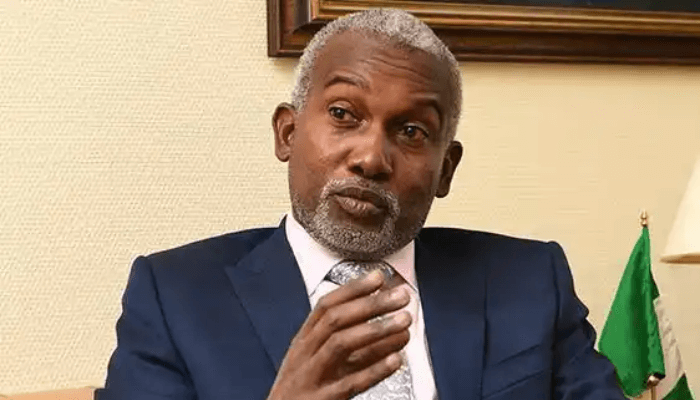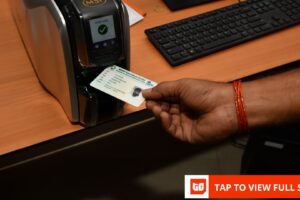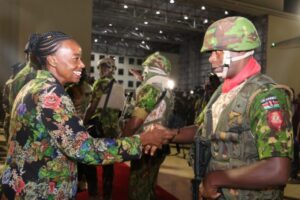
Yusuf Tuggar, Minister of Foreign Affairs, has stressed that Africa must move from aid dependence to investment-led growth if the continent is to unlock its vast economic potential and compete globally.
Speaking at the 2025 Gender Summit in Abuja, Tuggar warned that the continent risks stalling its transformation unless governments, businesses, and civil society work together to dismantle barriers that exclude women and youth from trade and investment opportunities.
He cited a Council on Foreign Relations report projecting that Nigeria alone could gain as much as $229 billion in additional GDP by 2025 if women participated equally in the economy, stressing that “growth without inclusivity is fragile, and prosperity without equity is unsustainable.”
Tuggar noted that Africa stands on the cusp of historic change, with a combined nominal GDP of $2.8 trillion and a population expected to surge to 2.5 billion by 2050, an increase of 67% within a generation.
With Nigeria contributing ₦372.8 trillion (about $243 billion) to that output, he said the country holds a strategic role in steering continental progress.
However, he cautioned that persistent structural barriers continue to blunt Africa’s potential.
Intra-African trade, he observed, remains at just 18%, compared to 59% in Asia and 69% in Europe, while women, who dominate the informal economy remain largely excluded from the benefits of formal trade.
He pointed to glaring gender disparities in education, politics, and economic participation as urgent concerns.
UNESCO’s 2024 report shows that 7.6 million Nigerian girls are still out of school, particularly in the North-West and North-East, while only 43% of girls complete lower secondary school compared to 46% of boys.
Women’s political representation is equally stands at just 27%, holding parliamentary seats across Africa and only 4.2% in Nigeria’s National Assembly.
“These statistics are not just numbers. They remind us of a simple truth: growth without inclusivity is fragile, and prosperity without equity is unsustainable”, Tuggar said.
He cited a Council on Foreign Relations study projecting that Nigeria’s GDP could expand by as much as 23% equivalent to $229 billion by 2025 if women participated equally in the economy.
Against this backdrop, the minister explained that Nigeria has recalibrated its foreign policy under President Bola Tinubu’s “4-D Diplomacy” agenda, built around Development, Demography, Diaspora, and Democracy.
The framework, he said, places inclusion at its core, ensuring that diplomatic engagement addresses the needs of women and youth.
He highlighted Nigeria’s flagship Regional Partnership for Democracy (RPD), which strengthens institutions, promotes inclusive participation, and fosters accountable governance across West Africa.
According to him, earlier this year, Nigeria also hosted the West Africa Economic Summit in Abuja, where Heads of State, business leaders, and development partners agreed to dismantle barriers to women’s economic empowerment, harmonise investment policies, and mainstream gender-responsive approaches into regional integration.
Tuggar warned that even promising frameworks such as the African Continental Free Trade Area (AfCFTA) and the Pan-African Payment and Settlement System (PAPSS) could inadvertently sideline vulnerable groups if issues like access to finance, market networks, and digital literacy are not addressed.
While celebrating Nigerian women who have risen to the helm of some of the continent’s biggest banks, he said more work was needed to accelerate gender inclusion in finance and corporate leadership.
He also cited domestic policies, the Nigerian Sustainable Banking Principles, the National Gender Policy, the Women’s Economic Empowerment Plan, and the INEC Gender Policy, as evidence of the country’s determination to create an inclusive foundation for governance and development.
The minister emphasised that true transformation lies in shifting resources into inclusive value chains led by women and youth, particularly in the informal economy where growth is most dynamic.
“Moving beyond aid means directing capital to small-scale enterprises, food processors, artisans, and creatives who form Africa’s economic backbone,” he said.
Tuggar also drew attention to youth-focused initiatives such as the Technical Aid Corps, the Nigeria Youth Investment Fund, the new Student Loan Act, and the Three Million Technical Talent (3MTT) programme, which trains young Nigerians in fields such as cybersecurity and artificial intelligence.
“A 4.2% share of parliamentary seats is unacceptable. True democracy is about equitable representation, and we must dismantle the systemic barriers that prevent women from holding leadership positions, including through legal reforms that protect their rights to property and political office”, he said.
Tuggar urged participants to support the creation of a Gender and Inclusion Framework for Economic Diplomacy as well as the Purple Book of Action Plans 2025, describing them as practical tools to ensure that every partnership and policy closes existing gaps rather than widening them.
“Equity is not optional. Inclusion is not charity. They are the foundations of a prosperous, stable, and sustainable Africa”, he noted.





